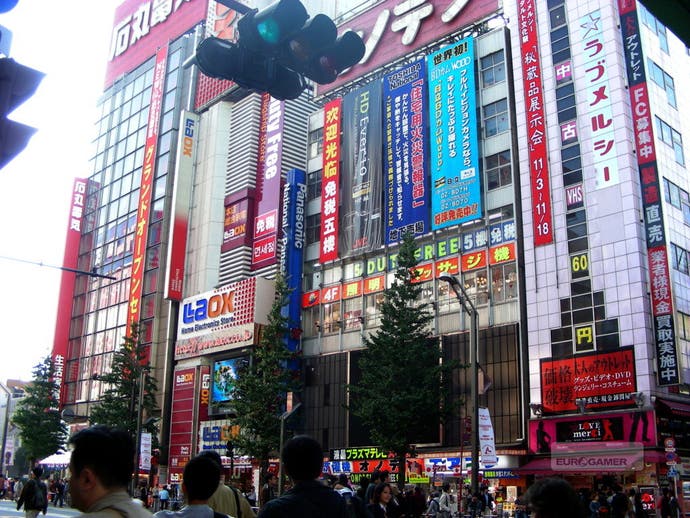An Englishman in New Tokyo
The Westerners saving the Japanese games industry from within.
James Kay decided at a young age to turn his hobby into a vocation and design games instead of merely consuming them. It was a dream he realised quickly, working at a clutch of British developers in the late nineties. But despite succeeding where many others have failed, Kay wasn't satisfied with his lot. Mario, Sonic and all of the other icons of his childhood were Japanese, their prominence in gaming's canon matching Japan's seemingly inextinguishable dominance of the global games industry.
What could be better for Kay than working at a Japanese studio, making the best videogames in the world under the leadership of the medium's best-known auteurs? In 2001 he emigrated to Tokyo, landing a job at a prestigious Japanese developer, working alongside his idols. Kay had made it big in Japan.
But the reality fell some way short of the dream. As one of only a few foreign game developers in Tokyo, work was lonely. Moreover, he found the salaryman studio culture that demanded employees work long hours into the night wearying and infuriating, perceiving the practice to be merely for show and not endeavor. Partly to vent his frustrations, and partly to expose the grim realities of life at a Japanese games developer, Kay assumed the penname JC Barnett and started blogging his experiences at Japanmanship.
"I hope my writing didn't come across as disillusioned so much as unapologetic," he says today. "Too many people were still enamoured by Japanese games and would hear no wrong about the system that produced them. People dreamed of working in Japan without really understanding what that entailed. I hoped that I could offer a realistic view of the situation, and I was always sure to encourage people to make the move, so long as they were fully informed."

The site fast became the go-to place for young men who, like Kay, dreamed of working abroad on the sort of games that had enriched their childhoods. But the timing of the site's popularity ensured Japanmanship became far more than just a travel guide-cum-careers advice column. As the industry collapsed around him Kay became a reporter on the frontline, offering a window into a secretive industry in decline. With the keen, raw insight of an insider, Kay offered a glimpse of how and, perhaps more crucially, why the Japanese games industry was coming apart at the seams.
"I do not, as they say, have what it takes [to work at large Japanese games company]," he wrote in December 2008, soon after leaving to set up his own Tokyo-based company, Score Studios. "I blame my low bull**** threshold and my desire to have professional, rational work practices... I still care deeply about my work and the final product, which is why I let things get to me so easily.
"It's not that I always know best, but I can recognise disaster... Japan has been getting away with too much for too long. Because Japanese games enjoy a certain amount of adoration, people have been too ready to forgive the many little issues that have been growing over the recent generations, and now things have come to a head. With even big-name Japanese products being technical disasters, [we have] to come to terms with the idea that, well, Japan isn't the Mecca of video games... not any more."
While the rest of the world watched, Kay's posts charted the last days of an empire.








